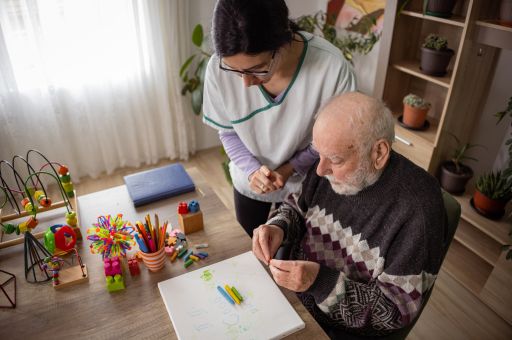Pablo Bustinduy, Minister of Social Rights, Consumption and Agenda 2030, and Mónica García, Minister of Health, have held a working meeting with the organisation ConELA (National Confederation of Amyotrophic Lateral Sclerosis Organisations) to present them with the draft of a plan for the deployment of the ALS Act. This is a document that both ministers want to develop jointly with the associations of people affected by this disease, who have been asked for their contributions at this meeting, and also in coordination with the regional governments that are responsible for applying the law.
TDB keeps you informed. Follow us on Facebook, Twitter and Instagram
The Government transfers the ALS law roll-out plan to the state confederation of people affected by the disease
This plan aims to provide a roadmap to make the ALS Act, approved in October 2024 in the Spanish Parliament with the vote in favour of all political groups, effective. This document aims to speed up compliance with the law with eleven measures that translate the law into specific policies to improve the quality of life of people affected by this disease, as well as that of their families and the people and professionals who care for them. The plan also sets out a timetable for implementing the commitments set out in the law and establishes coordination mechanisms with the regional governments to speed up the stipulated actions.
Two phases
The deployment of the ELA Act is divided into two phases. The first, which is already underway, develops eight actions to speed up the assessment procedures that will allow earlier access to services and benefits related to disability and dependency. It also addresses the need to provide specific training for professionals in the System for Autonomy and Care for Dependency (SAAD) in dealing with people with this disease.
In this initial phase, the actions established by law for other ministries will be activated and coordinated. Actions such as:
▪ Increasing contributions for family carers and their inclusion as a priority group in the active employment policies of the Ministry of Labour and the Ministry of Inclusion, Social Security, Inclusion and Migration.
▪ To specify the action of the Carlos III Health Institute through the Ministry of Science and Universities.
▪ Define actions on electro-dependent people (those who require intensive use of electricity), through the Ministry of Ecological Transition and the Demographic Challenge.
The first stage also includes the improvement of socio-sanitary coordination (measure 3) to establish a reference framework to define a common objective with the Autonomous Communities. It is within the framework of this coordination that progress must be made towards the provision of specialised services 24 hours a day, one of the main demands of the groups representing ALS sufferers.
The second phase, which is being prepared and will be activated when the regulatory development of the law is approved, focuses on adapting care and benefits to the needs of those affected and therefore involves measures that must be mobilised by the regional governments, as those responsible for offering services to those affected, and which are centred on:
Setting up a working group with the Devolved Regions within the Territorial Council of the SAAD to coordinate the work of this phase (measure 9).
Updating the system’s portfolio of services, extending coverage in physiotherapy and rehabilitation (measure 10).
Draw up a State Register of Neurodegenerative Diseases.
Regarding the draft presented this Friday to close a deployment plan with the people affected, Pablo Bustinduy stressed that ‘it represents a step forward in the implementation of the ELA Law’ and called for ‘the consensus reached in the drafting of the regulation to be extended to its implementation’. To this end, he pointed out, it is necessary that all public administrations, within the framework of their competencies and responsibilities, make the necessary effort to ensure that the benefits of this ‘great advance that the law has brought’ reach people affected by ALS and their families as quickly as possible.
Along these lines, the minister stressed the need to continue to strengthen the funding of the SAAD, through which the care needed by people with ALS and other irreversible diseases is provided. For this reason, Bustinduy will continue to call on all the political groups represented in Parliament to join the Government’s efforts to improve funding for Dependency within the next General State Budget, and has also alluded to the regional governments, which are the ones that provide these services, which will be funded through the SAAD and the National Health System.
In Harmony
For her part, Mónica García stressed that both ministries ‘are in maximum harmony and have areas of collaboration that allow for fluid and coordinated work’ to implement the ALS Act. ‘We are working to improve the care they receive and their quality of life,’ said the Minister of Health. ‘We are also aware that this law is an opportunity to improve the conditions of these patients and their companions, but also that of other people facing similar illnesses,’ she added, stressing that “when the care provided in the health system is improved, this ends up benefiting the entire population that comes to the health system, even though the focus may be on a group of patients”.
The minister also specified that this month the prior public consultation will be launched to initiate the procedures for the Royal Decree that will define the criteria and the list of illnesses to which the ALS Act will be applied. This process will involve the work of a group of experts who will establish the necessary clinical criteria to be met and the list of diseases.
